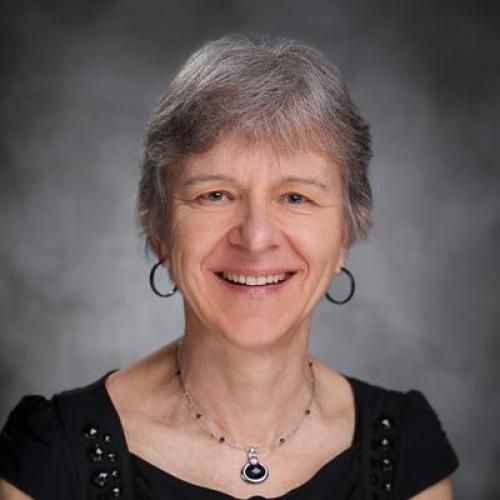Overview
I am trained as a Reproductive Physiologist with basic and translational research experience in multidisciplinary, collaborative settings. Improving women’s health requires the understanding of the underlying pathophysiology and the development of effective treatments. My current research focuses on uterine fibroids. These non-cancerous, often bulky and firm tumors have a major impact on women’s health, on quality of life and on health cost. They are a leading cause for hysterectomies. Medical treatment options mostly target hormone levels and are either short-lived or have significant side effects. The etiology of this disease remains poorly understood. Our research embraces a new direction in thinking about uterine fibroids. Uterine fibroids are more than neoplasms; they are a fibrotic disease. Abundant extracellular matrix (ECM) is a major component of uterine fibroid tumors and we focus on the production and degradation of collagen within the fibroids, changing the mechanical forces within these tumors leading to changes in stiffness. We are currently testing the local injection of purified collagenase into uterine fibroids. This treatment option can be carried out under ultrasound control, is non-hormonal, and does not require surgery. I also collaborate with Dr. Darlene Taylor at North Carolina Central University (NCCU). She is a chemist who developed a co-polymer drug delivery system that is liquid at room temperature and gels at body temperature. Collagenase (or other anti-fibrotic drugs) injected into fibroids in combination with her co-polymer could extend the localization and activity of the drugs within the treated tumors, allow for lower dosages, and reduce the need for repeat injections.
Another passion of mine is providing guidance and support for the career development of students, postdocs, and faculty and I am dedicated to help increase diversity and equity in the biomedical workforce through mentoring, community building, research, and leadership. My broad educational background and my work experience in clinical and non-clinical academic settings, government institutes, and industry collaborations have given me a useful perspective of diverse pathways to success. I have accumulated a considerable amount of institutional knowledge and interdisciplinary networks to support trainees with a wide variety of backgrounds, working in a range of disciplines on various projects. I stay engaged in this work through my work (a) as the Duke PI of a NIH U01-award investigating components of peer mentoring to enhance racial and ethnic diversity in the biomedical workforce (PROMISE study); (b) as the Co-Director of the Duke Clinical and Translational Science Institute (CTSI) Community of Scholars (CoS); and (c) as part of the leadership team of three K12 career development awards: (1) the Multidisciplinary K12 Urologic Research (KURe) Career Development Program, (2) the Women's Reproductive Health Research Program (WRHR). and (3) the Building Interdisciplinary Research Careers in Women's Health (BIRCWH). The Duke BIRCWH program has partnered with North Carolina Central University (NCCU), a historically black institution (HBCU), since 2002.
Current Appointments & Affiliations
Education, Training & Certifications
External Links
KURe - Multidisciplinary K12 Urologic Research Career Development Program - Website BIRCWH - K12 Building Interdisciplinary Research Careers in Women’s Health PROMISE Study - Peer group Research On Mentoring Scientists underrepresented in biomedical research Publications - NCBI WRHR - K12 Women's Reproductive Health Research Program Fibroid - Novel Treatment CoS - Community of Scholars

